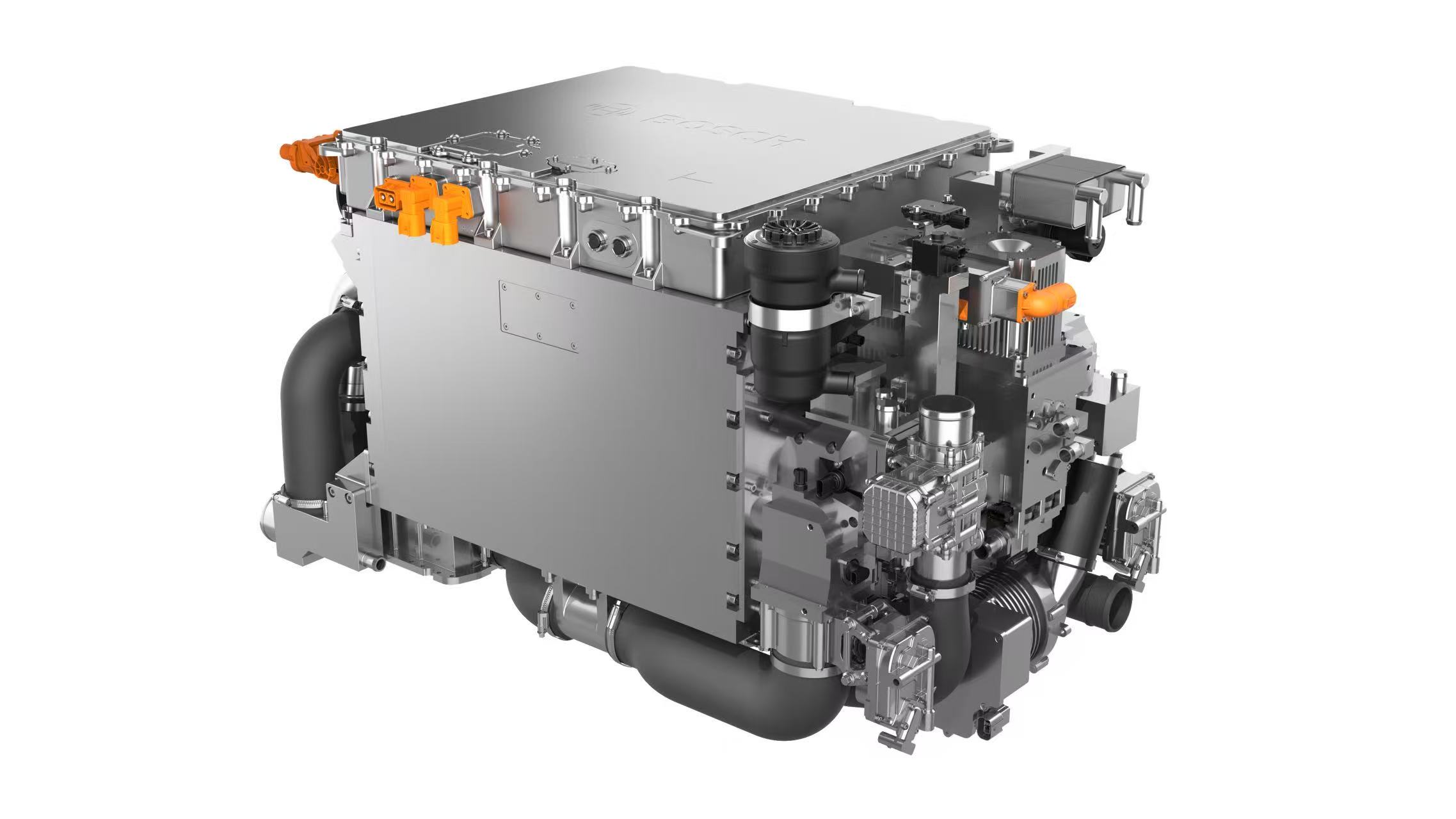 Bridging News
Bridging News
Bosch Predicts One in Five Trucks Powered by Hydrogen by 2030
Chongqing - "For short-distance, everyday use, electric vehicles are the preferred choice. However, for medium and long-distance travel, hydrogen energy is the way forward," shared Xiong Xiaoyong, deputy general manager of Bosch Hydrogen Powertrain Systems (Chongqing) Co., Ltd in a recent interview with Bridging News.
Xiong emphasized that hydrogen fuel is particularly suited for commercial vehicles, as it can operate in temperatures as low as minus 30 degrees—something electric vehicles cannot achieve.

Hydrogen-powered commercial vehicles. (Photo/Jiulongpo District)
As hydrogen energy takes center stage in China's pursuit of its dual carbon goals, Bosch is playing a pivotal role in driving the transition, particularly within transportation, one of the largest energy-consuming sectors.
Bosch Hydrogen Powertrain Systems (Chongqing) Co., Ltd., a joint venture between Bosch and Qingling Motors Group, is leading the charge in the production of hydrogen power systems. Established in 2021 and commencing production in 2023, the Chongqing facility has rapidly become Bosch's most important hydrogen power system production site outside Germany.
The significance of hydrogen in achieving climate neutrality is increasingly acknowledged. Bosch predicts that by 2030, one in five new trucks globally weighing over six tons will run on hydrogen. This projection underscores the growing importance of hydrogen as a clean, renewable energy source with zero emissions, especially in sectors like chemicals, transportation, steel, and energy.

Bosch Hydrogen Powertrain Systems (Chongqing) Co., Ltd. is leading the charge in the production of hydrogen power systems. (Photo/Bosch Hydrogen Powertrain Systems (Chongqing) Co., Ltd.)
At Bosch's Chongqing facility, several hydrogen-powered products have already been launched, including 80 kW, 134 kW, and 190 kW systems that cater to a variety of commercial vehicle applications, from urban transport to long-distance heavy-duty logistics. Notably, a 300 kW hydrogen power module is already being tested in customer vehicles, with these vehicles collectively surpassing 3.6 million kilometers.
In addition to power modules, Bosch has also unveiled a highly efficient, lightweight electric drive axle for heavy-duty vehicles. This new product integrates the gearbox, motor, and differential into a single, compact unit and can be used with hydrogen or pure electric systems for vehicles weighing 18 to 49 tons, enhancing overall powertrain efficiency and reducing operating costs.
Bosch's efforts align with China’s broader green energy transition, with Chongqing emerging as a key hub for hydrogen energy. The city's Western Hydrogen Valley project is advancing, and the development of a comprehensive hydrogen power industry is gaining momentum. The Qingling 190 kW hydrogen power module by Bosch has become a notable development in this growing sector.

Bosch's 300 kW fuel cell system. (Photo/Bosch Hydrogen Powertrain Systems (Chongqing) Co., Ltd.)
Hydrogen demonstration projects play a crucial role in the widespread adoption of this technology. In 2021, the first domestic trunk logistics demonstration was carried out in Chongqing’s Jiulongpo District, marking the launch of the Chengdu-Chongqing Hydrogen Corridor. Today, over 120 hydrogen fuel cell vehicles operate along the corridor, collectively covering over 3.3 million kilometers.
Bosch is confident that hydrogen energy will be crucial in transforming the future of transportation, both in China and globally. With key milestones already reached, the company sees hydrogen as essential for reducing carbon emissions and advancing clean energy solutions in the transportation sector.
Bosch, recognizing that climate neutrality cannot be reached without hydrogen, is committed to accelerating the development of a hydrogen economy. To support this, the company is increasing its investment in hydrogen technology, planning to allocate approximately 2.5 billion euros to research, development, and manufacturing between 2021 and 2026.
 Related Stories
Related Stories